What a future-set Chicano noir inspired by ‘Sunset Boulevard’ tells us about the present
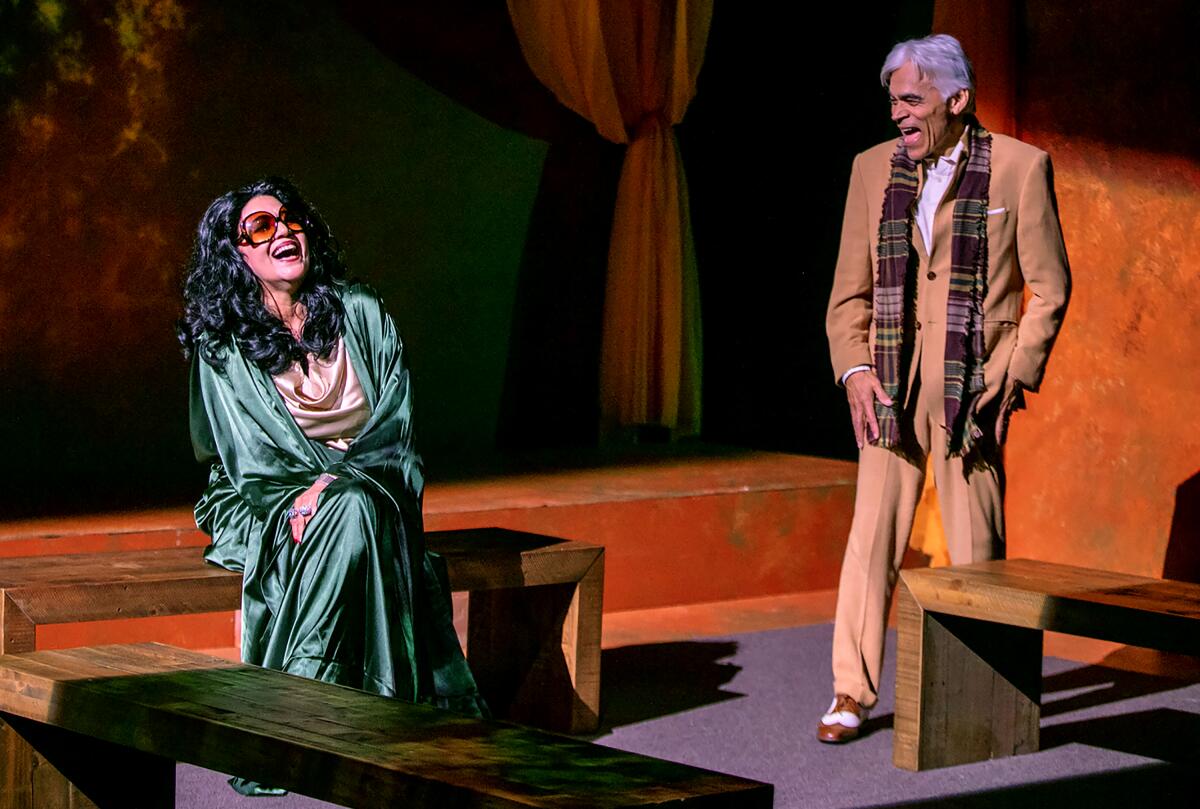
The year is 2042. Laws protecting human rights have been reversed, and community elders are vanishing. Chicana starlet Veronica Del Rio, soon turning 75, then emerges from the mist of futuristic misfortune to tell present-day audiences tales of the past before they are forgotten.
It all begins when Del Rio, portrayed by Evelina Fernández, gets a surprise visit from a policeman whose presence threatens her safety. In the play, the totalitarian city-state pushes the elders out of existence, and she, along with her memories of L.A., are at risk of disappearing. “Whittier Boulevard,” written and performed by the Latino Theater Company, jumps to the near future to look back at the Latino history of L.A. and tell the stories of the city‘s residents through a Chicano noir aesthetic. Combining oral histories with noir themes, the show, which opened April 29, is quintessential L.A., says director José Luis Valenzuela.
“What is going to happen to our history and who is going to record our history if we get rid of the old people?” Valenzuela asks. “Not even they are going to be able to tell us what happened during this time.”
The concept of “Whittier Boulevard” developed during the COVID-19 pandemic during the company’s RE: Encuentro 2021: National Virtual Latina/o/x Theatre Festival. As the festival came together, Lucy Rodriguez — who also plays Pilar in the show — says they realized that the core of the company should also be developing new work. So she, along with other founding members of LTC —Fernández, Valenzuela, Sal Lopez and Geoffrey Rivas — developed a “quick and dirty” storyline, as she describes it.
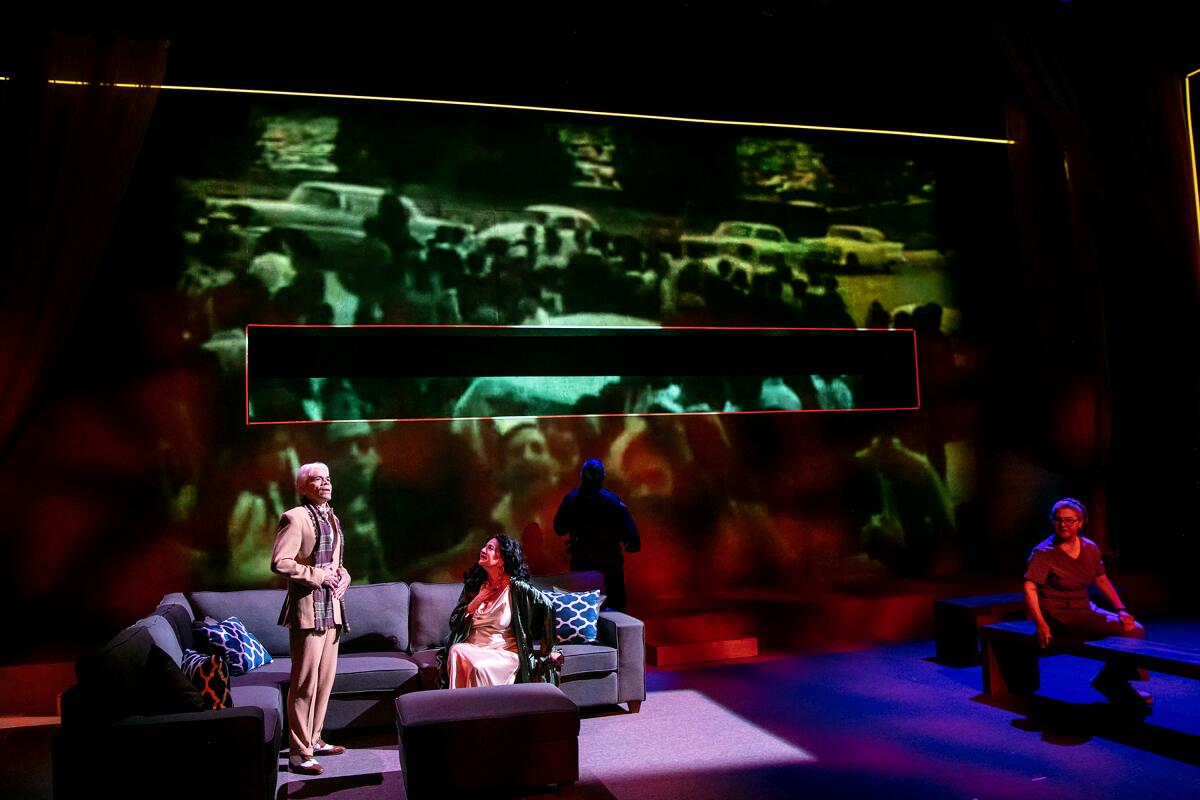
Valenzuela broke the narrative down into pieces and assigned sections for others to write. The founding members collaborated to fill the gaps in the story while Valenzuela identified the core characters and started to knit everyone’s ideas together.
“All of us have been together for so long,” Lopez says. “There’s a trust between us that we’re going to write, we’re gonna say ‘that’s good,’ or ‘that’s great, let’s tweak it this way.’”
While a chunk of the plays performed in RE: Encuentro examined the impact of the COVID-19 pandemic, the ensemble wanted this work to look at the present from a different lens. They wanted to go into the future and see how decisions we make today could affect our understanding of history. “We’re experimenting with Chicano futurism,” Fernández says.
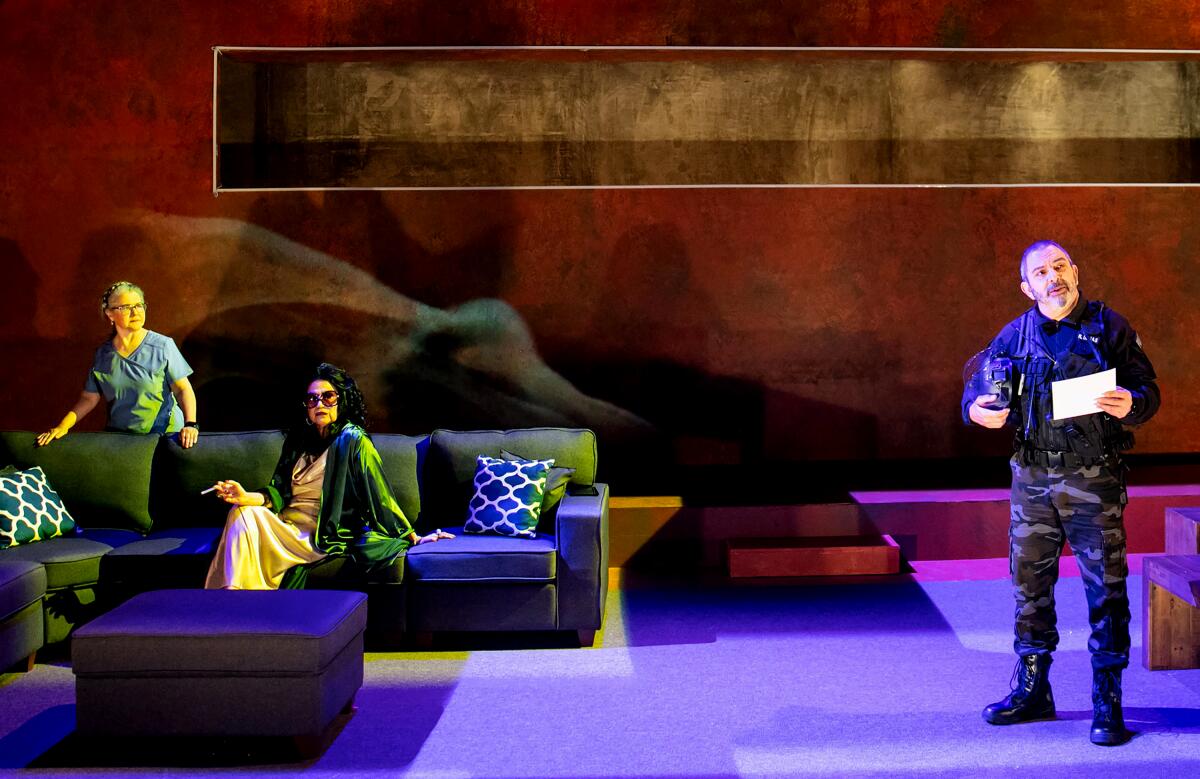
“It was crazier and very, very different than what we see today,” Valenzuela says. “When we brought it back and tried to be more specific and more clear, we said, ‘Well, we’re gonna go back to the noir style.’”
Chicano noir has become a staple of the company’s work. The cinematic take has a distinctive tone that allows complex concepts, like angels and the act of recording history, to be fully realized onstage without the need to stick to realism.
“Chicano noir is something that we kind of started with ‘Solitude,’ and then we went really heavy with it with ‘Premeditation,’” Fernández says.
“Whittier Boulevard” begins with an introduction to the elder angels recording history on the walls. Slowly, with projections designed by Yee Eun Nam and Yuki Izumihara, moments from Latino L.A. history appear all over the stage. The angels of the play are inspired by the Angels of Mons, the story of supernatural entities that some claimed showed up in the sky during the Battle of Mons during World War I. This time around, the angels in “Whittier Boulevard” are here to remind the audience that we are divine beings, Valenzuela says.
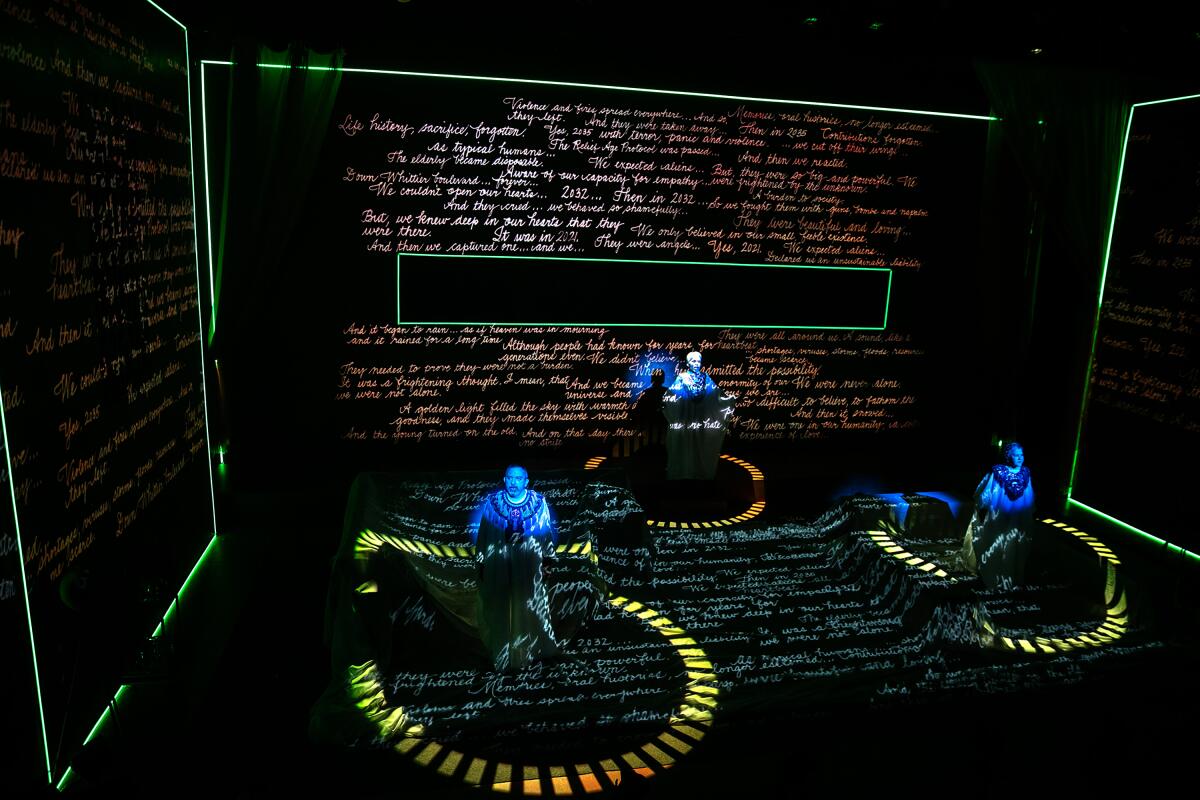
“The divine is in ourselves,” he says.
In the world of the play, anti-LGBTQ+ laws have returned, a societal age limit has been created and identities are policed. Fernández says they began creating the work in 2021 as a “what if,” but “between the time we started writing the play and putting it onstage, laws are changing as we speak.”
This caused “Whittier Boulevard” to take on new urgency. By referencing historical moments including the Chicano movement, the play urges audiences to reflect on the events that have been pivotal to L.A.
Fernández notes that Latino Theater Company developed out of the desire to see Latinos onstage and for the community’s stories to be shared.
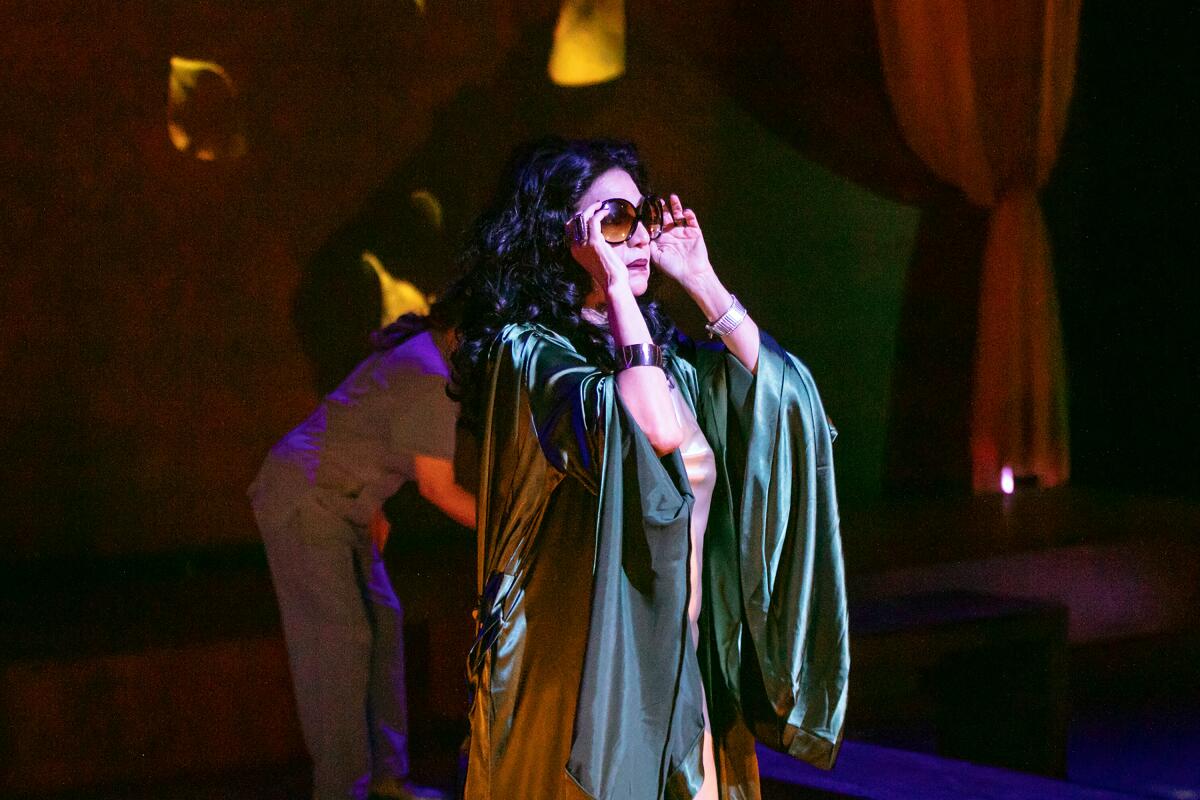
“This is our theater, so we make it happen because we want it to happen for our audience,” she says. “At the other big regional theaters, maybe we get one Latino play every two or three years. We have the power to do this because this is our theater.”
The ensemble in “Whittier Boulevard” is the same group that first came together as 20-somethings in L.A., wanting to create art that could connect to with their community. Almost 30 years later, they’ve had kids, gotten married and grown older. Now, they talk about ageism and, with years of life experience, seek to remind people of the past before it is lost. Ultimately, “Whitter Boulevard” was created in hope of a better future for L.A.
“We do this for the people of Los Angeles,” Fernández says. “We do it for all Latino communities and all Angelenos.”
She adds, “We’re recording our own history.”
'Whittier Boulevard'
Where: Latino Theater Company at Los Angeles Theatre Center, 514 S. Spring St., Los Angeles
When: 8 p.m. Thursdays-Saturdays, 4 p.m. Sundays. Ends May 28
Tickets: $22 to $48
Running time: 1 hour, 20 minutes
Contact: latinotheaterco.org
More to Read
The biggest entertainment stories
Get our big stories about Hollywood, film, television, music, arts, culture and more right in your inbox as soon as they publish.
You may occasionally receive promotional content from the Los Angeles Times.











